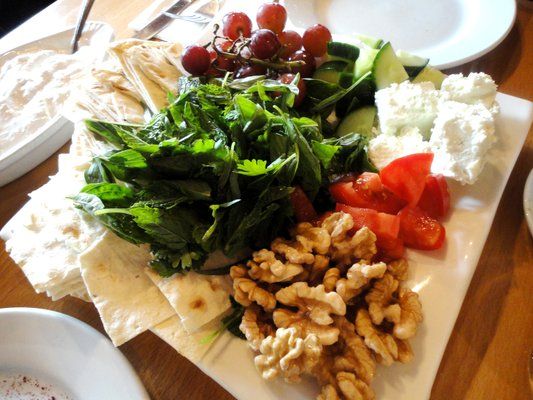Get Your Appetite Back on Track with the Right Carbs

What makes us hungry?
Carbs and the neuroregulation of appetite is getting a lot of press these days. As the epidemic of diabetes increases even young people are suffering the effects of obesity. The result is researchers are hell-bent on finding solutions. Our bodies have a feedback loops that let us know when we are full or need energy. If the mechanism is broken then we don’t know how to turn off. Like a car without the brakes we are heading for disaster. For some people, anxiety leads to no appetite. How can we get our brain and gut working together again? As biochemist and health enthusiast Robb Wolf puts it, we are ‘hardwired to eat’. Let’s reboot our culture and bodies to regain the innate health which is our genetic foundation.
No Longer About Macronutrients
Low-carb and ketosis is the new focus these days. For some keto can result in an exacerbation of symptoms. The last fad of low-fat may have led to this because we were all obsessed with whole grains. Worldwide we know there are people who thrive on all types of macronutrient ratios. Traditional Inuit consume very high fat diets and are well adapted to their environment. We know of cultures that ate honey for two months of the year and high carbs the rest of the time without suffering chronic disease like ours does.
Each person is unique and some tolerate carbs well while others get spikes in their blood glucose levels even when they consume cellular carbs with the fibres intact. These people require more protein and fat to stabilize they cortisol and bring down inflammation. Lower carb intake can work well for someone who is insulin resistant and has lower activity levels. It’s crucial that stress is well-managed to maintain stable blood sugar.
Eat Enough Of the Right Stuff
We know that highly processed carbs are a nightmare for many reasons. Gluten is part of this and the lack of fibre is the other part. A variety of fibres feed the gut microbiota, support clearance of excess hormones and is preventative for several diseases. Knowing what is enough for your body and choosing the right carbs is important. Another problem with refined carbs and sugars is that it creates an insatiable hunger. We are less likely to get the relaxed, dopamine rush that comes from a nutrient dense, higher protein meal.
Hyper-Palatable Food
Can you imagine overeating a undressed potatoes or yams? What about if you add a bunch of fat and seasoning? Research around processed foods that are hyper palatable show that the brain is stimulated in ways that create addiction similar to cocaine and nicotine. When we eat very sweet food its the same and the craving for extreme salt is the body’s way to regain homeostasis. You can avoid the craving to overeat simply by staying in the middle ground of flavour sensation. It becomes really easy once you start reading labels and learning what those flavour additives do to your organs.
Roots and Shoots: The Real Superfoods
Roots veggies can be the baseline for our carb needs along with some fruit. Shoots include superfoods like green onions. The nutrient density and medicinal quality of this simple food is off the charts. Enjoy green onions over your morning breakfast meal along with some healthy fats. Make sure you have some protein and sauerkraut to get the lasting feeling of relaxed energy that these foods offer.
Social Contact and Mindfulness
Just a reminder how crucial social support and contemplative practice is for health. The medical research on these subjects is overwhelming. I see this in clinic and when I assist on meditation retreats. In my own life these are game changes and were more important than what I ate in terms of recovering my vitality. This is why I teach classes on physiology, nutrition and meditation.
Related Posts
 Brain Changes in Perimenopause
Brain Changes in Perimenopause
 Hormones Involved with Autism Spectrum Disorder
Hormones Involved with Autism Spectrum Disorder




